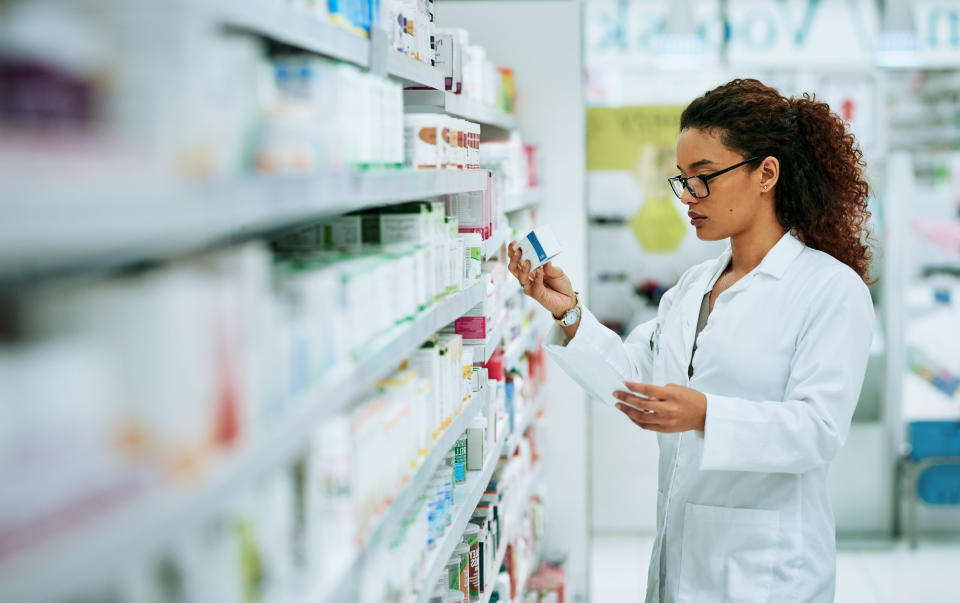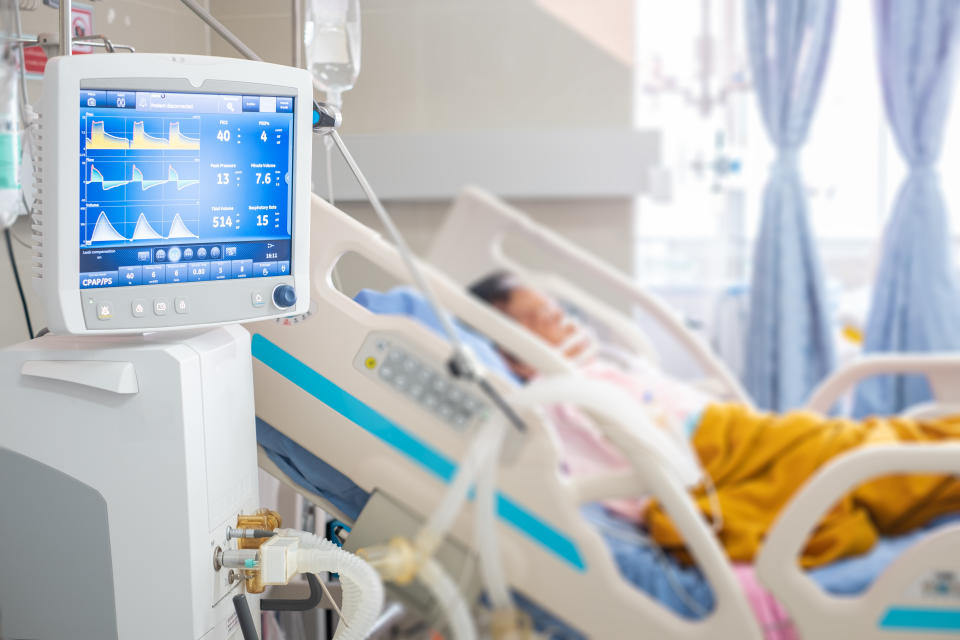Infectious diseases, chemical threats, nuclear attacks: Here's how the FDA is advising hospitals to prepare for the worst
While the COVID-19 pandemic is far from over — and not even close to slowing down — the Food and Drug Administration is already looking toward the next public health emergency.

On Friday, the FDA released a list of essential medications and “medical countermeasures” — which include drugs and devices for “a potential public health emergency stemming from a terrorist attack with a biological, chemical, or radiological/nuclear material, or a naturally occurring emerging disease” — that are needed to help combat future threats to public health.
The list, which contains 223 drug and biological product essential medicines and medical countermeasures, along with 96 medical devices, features items that the FDA has deemed “medically necessary to have available at all times in an amount adequate to serve patient needs and in the appropriate dosage forms,” according to a press release issued by the agency.
“Basically, it’s a list of meds and devices to cover many conditions so that hospitals will be fully prepared in the event that there are mass shortages,” Jamie Alan, an assistant professor of pharmacology and toxicology at Michigan State University, explains to Yahoo Life. “This would be something the pharmacy could cross-check to make sure they were stocked up on everything they need.”
The list was created on the prompting of an executive order issued in early August.
“The goal of this work is to ensure the American public is protected against outbreaks of emerging infectious diseases, such as COVID-19, as well as chemical, biological, radiological and nuclear threats,” the release says. “To accomplish this goal, the executive order seeks to ensure sufficient and reliable, long-term domestic production of these products, and to minimize potential shortages by reducing our dependence on foreign manufacturers of these products.”

The medications identified are ones that are “most needed for patients in U.S. acute care medical facilities, which specialize in short-term treatment for severe injuries or illnesses, and urgent medical conditions,” the release says. The devices include diagnostic testing kits, supplies for rapid test development and processing, personal protective equipment, active vital-sign monitoring devices, devices for vaccine delivery and medical devices like ventilators.
According to the FDA, the items that made the list are what the agency anticipates “will be needed to respond to future pandemics, epidemics, and chemical, biological and radiological/nuclear threats.”
“When identifying essential medicines and medical countermeasures, we focused on including those that are medically necessary to have available in adequate supply which can be used for the widest populations to have the greatest potential impact on public health,” the release says.
The list will be used by federal partners to “carry out directives in the executive order, such as facilitating domestic production and increasing the domestic procurement of items on the list,” FDA spokesperson Jeremy Kahn tells Yahoo Life. While helping hospital systems actually procure the supplies is outside the FDA’s expertise, Kahn says that the organization “intends to provide input as appropriate to help other agencies fulfill their procurement obligations.”
There is a wide range of items on the list, including medications like the blood-thinner heparin, antiviral medications (including oseltamivir, which is used to treat the flu), steroids, select chemotherapy drugs, the antibiotic cream bacitracin, oximeters, hypodermic needles and transfusable blood.
It seems obvious that hospital systems should stock up on needed supplies and medications — especially after going through shortages due to the COVID-19 pandemic — but the list may be helpful, Dr. Richard Watkins, an infectious disease physician in Akron, Ohio, and a professor of medicine at the Northeast Ohio Medical University, tells Yahoo Life. “Many hospitals are in dire financial straits, so guidance that helps them plan about supply issues could be useful,” he says.
Dr. Amesh A. Adalja, senior scholar at the Johns Hopkins Center for Health Security, agrees. “There are certain medications that we want to have in ample supply for any type of public health emergency,” he tells Yahoo Life. “Many hospitals don’t necessarily think about global public health emergency planning. They just might think about an influenza pandemic.”
Doctors say the pandemic has been hard on medical systems. “We have recently experienced shortages of basic medications, such as intravenous morphine and normal saline, which wreaked havoc on basic patient care needs,” Dr. Lewis Nelson, chair of the Department of Emergency Medicine at Rutgers New Jersey Medical School, tells Yahoo Life. “The recognition of how ill-prepared the country was for the coronavirus epidemic highlights our vulnerability to other public health and terrorism-related concerns. In an effort to be sure that we maintain adequate supplies of medications, antidote, personal protective equipment, diagnostic tests and other devices, the list lays out what would be considered essential to mitigate both of these situations.”
But, Alan says, it’s likely hospital systems are already aware that they need to have at least some these medications and devices stockpiled. “Most hospital pharmacies will have a list like this already, but it’s nice to have,” she says.
Regardless of whether hospitals have a list like this, Alan says it’s crucial for medical providers to have the right supplies on hand for future public health emergencies. “It could make a big difference,” she says. “There are several potentially lifesaving medications on this list. In a public health emergency, supply chains could very well break down, and having these medications and devices in stock is a good idea.”
For the latest coronavirus news and updates, follow along at https://news.yahoo.com/coronavirus. According to experts, people over 60 and those who are immunocompromised continue to be the most at risk. If you have questions, please reference the CDC’s and WHO’s resource guides.
How to maintain your physical and mental health during the pandemic
Taking care of a loved one with COVID-19? Here’s how to stay healthy
Q&A with Dr. Kavita Patel: How to keep your family safe and maintain your mental health
Read more from Yahoo Life
Want lifestyle and wellness news delivered to your inbox? Sign up here for Yahoo Life’s newsletter.



